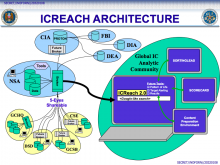Ex-NSA chief's hack patent raises questions
A 5-month-old company in Washington has developed what it calls groundbreaking technology to thwart cyber-attacks before they've been identified - a significant advancement over current systems that react to known threats.
Trouble is, the founder of the company, Keith Alexander, headed the US National Security Agency until March, and his plan to patent the technology is drawing criticism from people who say he's profiting from work he did for the government.











































































